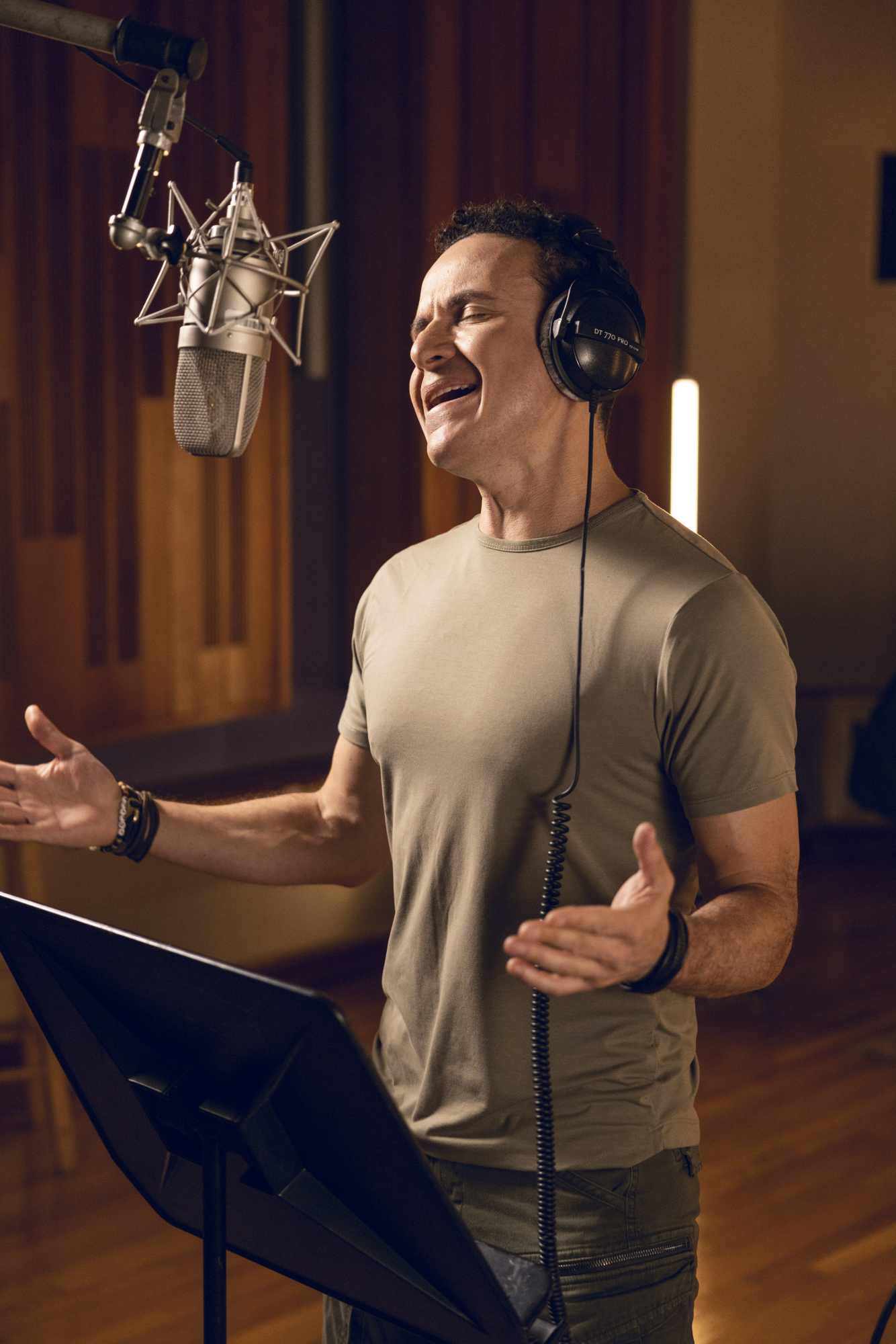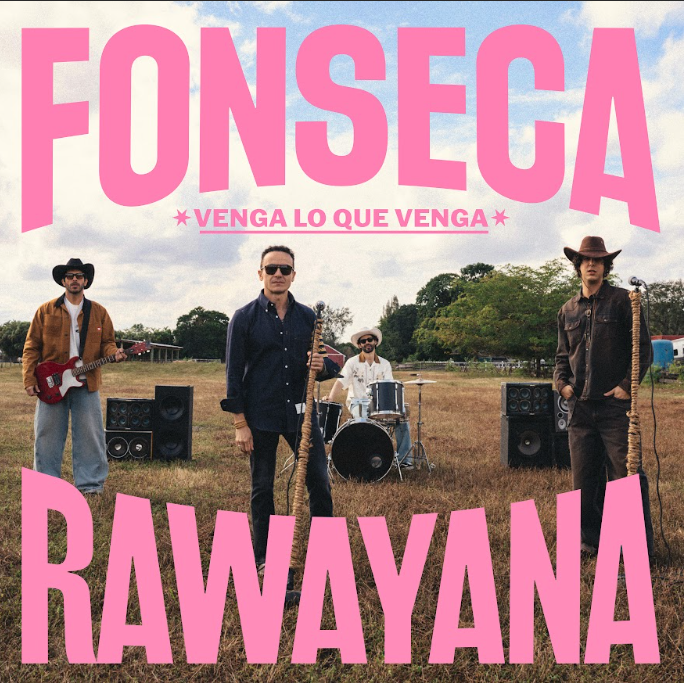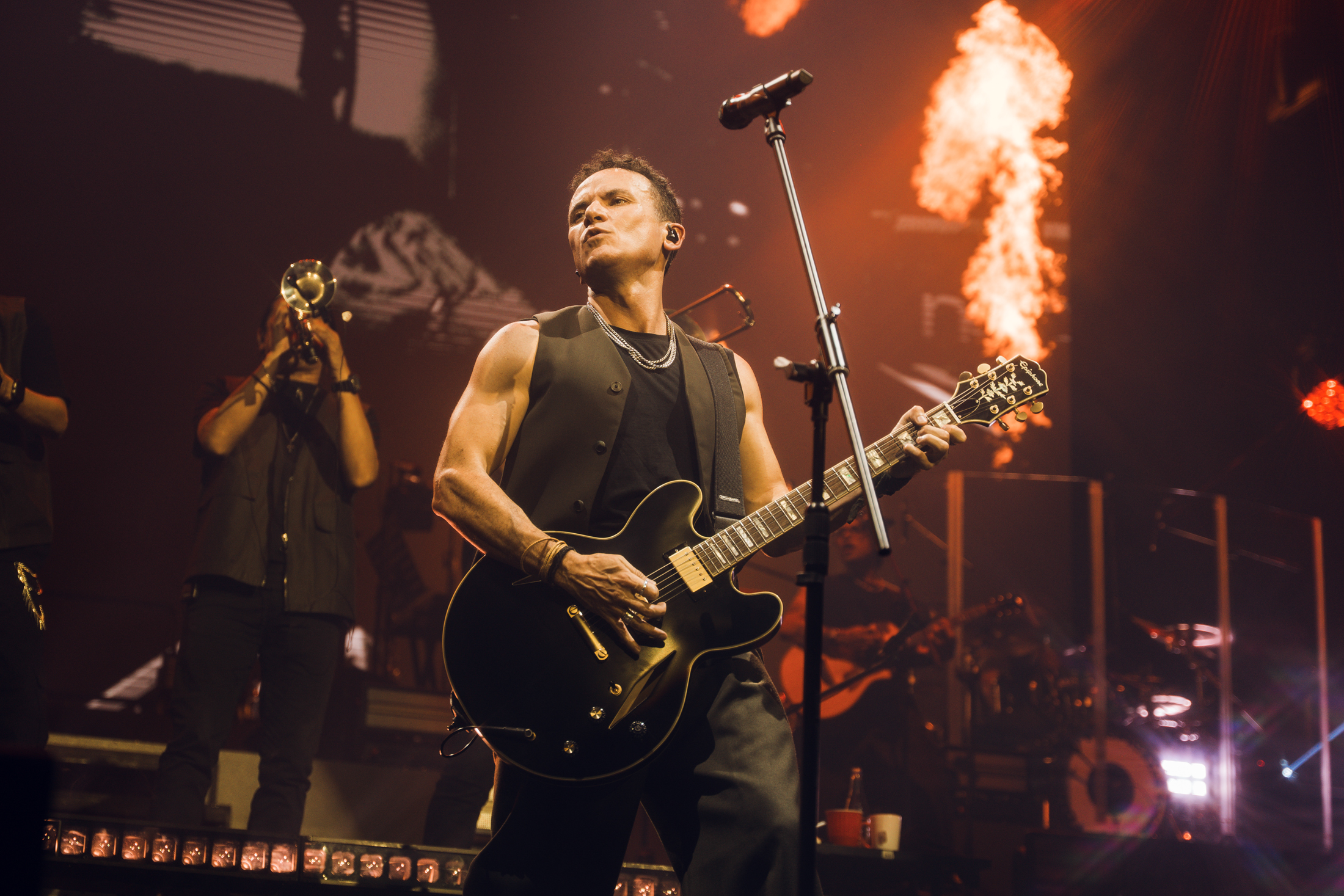Fonseca talks about his song about migrants, alongside Rubén Blades: "Everything feels even more so on the outside."

Fonseca has shared the stage with major stars of tropical music : Juan Luis Guerra, Gilberto Santa Rosa, Willie Colón, Grupo Niche, Chucho Valdés, Rawayana... the list goes on. Tropicalia, his most recent album, which also lends its name to his current concert tour, was the perfect excuse to hang out with figures of the genre. However, the Bogotá-born singer-songwriter's most recent collaboration is "too important for my career and for my life."
"The day we released the song, I opened my eyes around 4 in the morning and couldn't go back to sleep. I had this anxiety inside, this excitement...of course, today is the day a song with Rubén Blades is coming out, right?" Fonseca recalled in a chat with EL TIEMPO about the release of 'Nunca me fui', one of the previews of her upcoming album.
Rubén Blades has plenty of credit: his name is fundamental to the history of Latin American tropical music and salsa, but he's also a symbol for Latin Americans living outside their region. That's why it was so important for Fonseca to share this song with him: "It was incredible that, in addition to getting him to accept the invitation, he helped me amplify the message of the song (...) what more could I ask for in life?"
Juan Fernando Fonseca has lived in Miami since 2012 and drew on his personal experience to capture in "Nunca me fui" the turmoil of emotions experienced by migrants who leave their country in search of a better life, but whose deepest feelings are those that connect them to their homeland. In the midst of his "Tropicalia" tour, Fonseca took a few minutes to talk about his new song and the album he's already working on.

'Tropicalia' is Fonseca's latest album. Photo: Omar Cruz
The migrant could have left for X or Y reasons, in better or worse conditions. At the end of the day, whoever leaves, leaves many things behind and leaves very upset. And I think that connection of heart and that attachment to one's roots, that gratitude toward one's land, toward one's family and extended family, who are the friends you find in the other place, and toward that other place, even if it's hard, opens doors and generates opportunities. There are so many things that happen in the world of a migrant, that's why we wanted to talk about it, because I think it's a whole world. I thought about it, and in some way it also humanizes that migrant, because many times in this convulsed world of migration, as if with the same xenophobia, they are seen as an intruder. And surely, that intruder brings with them a difficult history or one full of memories, of pain. And "I Never Left," although it is not a political message nor does it pretend to be, is a message of gratitude, of attachment, of love. And having the maestro Rubén Blades accompany me in expanding and amplifying that message, well, that's the greatest thing there is.
Rubén is a very well-liked person and has very strong connections with Colombian artists. What was it like to ask him to sing with you? That part was really fun. I say fun because once I had the song already very well put together and advanced, when I considered the possibility that Rubén Blades could be there—which would be an honor—to amplify that message, I said, we have to find a way to really reach him, without so many intermediaries. I wanted someone who knew him to sit him down and say, 'Listen to this song.' And because of life's twists and turns, someone we knew in common recently started working on booking his concerts, and I ran into him when Silvestre Dangond invited me to sing with him here in Miami. We chatted backstage, and he told me he was with Rubén. It was incredible because I came with the song, let's say, under my arm. So I asked him to show him the song—not send it to him, but show it to him. And he did the rounds. It was very beautiful and special because Rubén heard it, and often the response to those collaboration proposals can take a while, and eight days later, I was in a recording studio singing "Nunca me fui." Rubén's words for the song, the lyrics, the theme, and me—they were truly special; it was a wonderful experience.

Fonseca and Rawayana in the song "Come What Comes" Photo: Sony Music
I'm in the process of building it, about 60 or 70 percent done. I'm very happy with the process so far, but I'm just missing the finishing touches, so to speak, of the album. At this stage, I go back and review and make adjustments and changes, so I can't say I've finished it conceptually, but I'm doing very well. The thing is, it's been a year of playing a lot with the Tropicalia Tour in many places, so between the spaces I've been able to, I go back and enter the studio. The truth is, I'm in a very comfortable musical moment, with my sound, as they say, comfortable in my skin, very clear in the melodies and lyrics, and I'm in a very beautiful moment of inspiration. Today, I sit down to write, and it flows very naturally.
The enviable list of collaborations he's had speaks volumes about the quality of what he's done, about that good moment. Yes, very beautiful. And as I was just telling you, Rubén's words to the song and the lyrics were almost as if I'd been given an honorary degree from some music university, because he sent me a text saying: 'I congratulate you on the message, the melody, the harmony, the arrangements.' It was a list like that, and coming from a guy like Rubén Blades, it's worth a lot.
From a musical and melodic perspective, what can we say about the album? I've always liked experimenting with different genres, and that's why I've gravitated toward pop and symphonic sounds. I've dabbled in different things that my intuition has led me to, but since Tropicalia, I've felt very tropical, in my own style, and I can definitely say that this album also goes in that direction. Aside from the collaborations with Rubén and Rawayana, I have a couple of other artists that I think will be very unexpected. I don't think anyone would have imagined them, but beyond that, I can't say much. But everything sounds in a very tropical context, deeply rooted in my music, in my homeland.

Fonseca during his 'Tropicalia Tour' concert in Bogotá, April 4, 2025. Photo: Camilo Baez
Well, that's where the song comes from, from a personal feeling. I've been away from Colombia for 13 years, and I originally left for three months and then stayed. But always, obviously, even though I go back to Colombia constantly, the fact of not being there every day with family, with friends, missing out on those important things, seeing your country from the outside... as you say, everything feels even more so from the outside. And also seeing the city where I live, where I came chasing dreams. All of that mixed with my personal experience led me to want to leave that message of affection, of gratitude for the land, and hopefully it's a song that gives hope, motivation. One can say that the road has been hard, but I'm here because I'm building my dreams and I want to bring well-being to my family back there or to the one I have here. There are so many stories. But yes, the song is definitely a personal story, where I also wanted to convey a message to other people, but it comes from something very intimate.
And from their perspective, it's had a very happy ending so far. So it's nice for people that dreaming is possible and worth it. One hundred percent. In my case, the decision to come to Miami was because at that point in my studies, in 2012, I felt that to open the doors of this country and to open the doors of Mexico, it was easier for me to do it from here. And from Colombia, I was going to be on a day-to-day basis looking for opportunities, composing with other people, and looking for producers. At that moment, I grabbed my daughter Paz, who was one year old, and with Juliana, my wife, we came here and began to build our lives from scratch. As you say, so far the process has been incredible and with very beautiful results, but of course, I've experienced the process of a migrant living outside of their country.
It's quite a feat to make an album while on tour, how did you manage it? It's about finding the space. The truth is, I really enjoy being on tour, and at the same time, listening to the new songs in progress; and I give my opinions, like, should we change this or the mixes... that also takes me out of the touring routine. Plus, that part of composing has always been a personal challenge, crafting something. I love it.
So, when is the album coming out? Well, I think we'll release a full album in the first quarter of next year, more or less. But, aside from this song we released with Rubén, I'd like to release two more songs this year.
eltiempo





%3Aformat(jpg)%3Aquality(99)%3Awatermark(f.elconfidencial.com%2Ffile%2Fbae%2Feea%2Ffde%2Fbaeeeafde1b3229287b0c008f7602058.png%2C0%2C275%2C1)%2Ff.elconfidencial.com%2Foriginal%2Fdaf%2F8be%2Ff59%2Fdaf8bef59d7203bca091781ca9b15c99.jpg&w=1280&q=100)